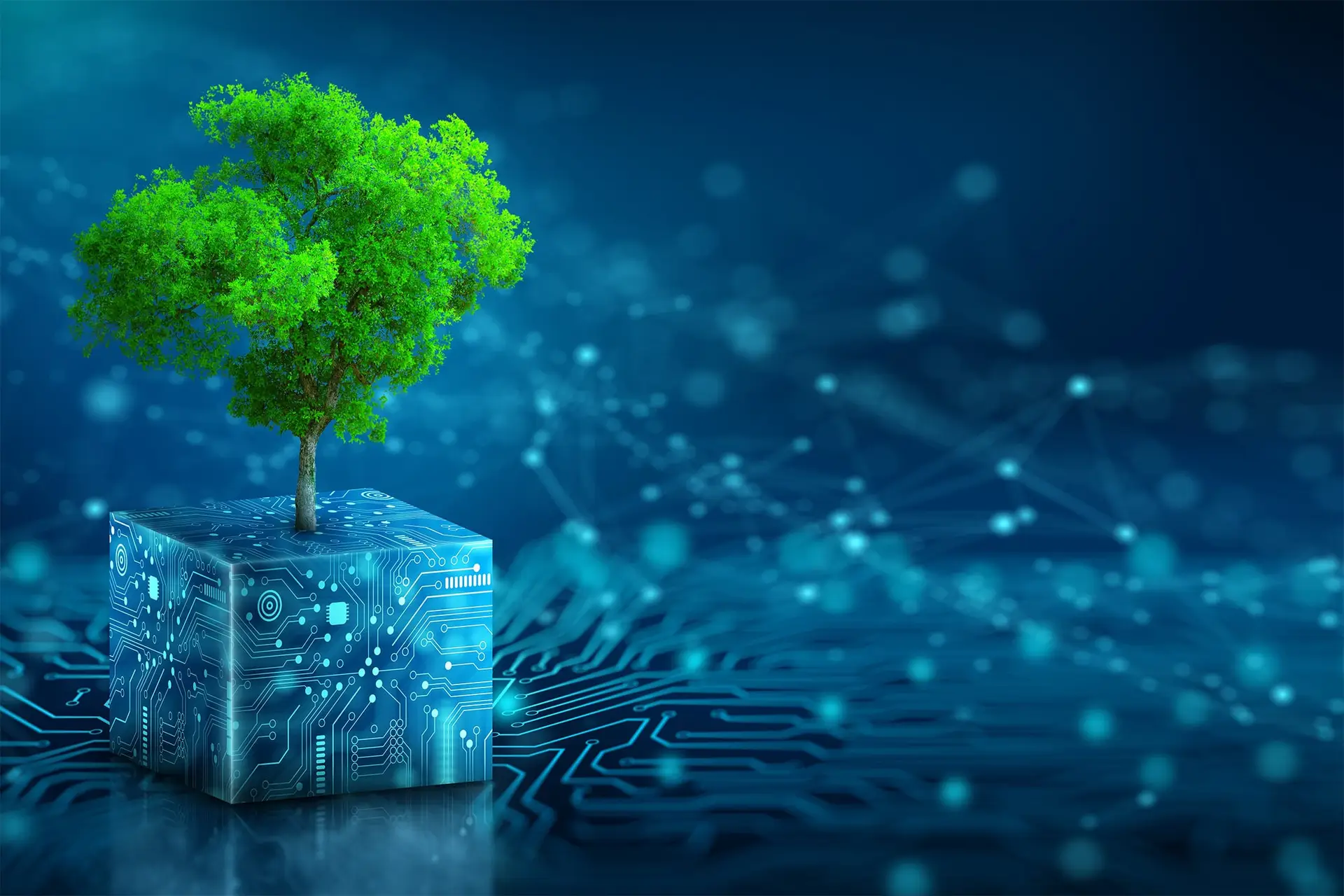On average, people across all social classes live in better conditions today than ever before. Growth has been a major factor for that: growth of the economy, of technological capabilities, of knowledge. But these days, the dark side of humankind’s drive to grow also shows its face in an unmistakable way:
Russia has invaded a peaceful neighboring country and brought the world to the brink of nuclear war over territorial disputes.
The IPCC 2022 Climate Report once again exposes how human actions affect the climate and ecosystems – and the dangers they pose.
The number of refugees across the world, who have lost their homes to war, poverty, hunger has also never been higher, according to the UNHCR’s 2021 Mid-Year Trends report.
But does this mean that the concept of growth, of companies, the economy, and human population is inherently unsustainable? Ever since the Club of Rome published its report on “The Limits to Growth”, there has been a widespread narrative that abandoning at least a certain degree of prosperity will be an inevitable part of our future – often combined with a call to return to simpler times as they used to be. As someone who cares deeply about sustainability and leaving behind a world worth living in for future generations, I can somewhat sympathize with that way of thinking. As an entrepreneur, however, I have fundamental objections to this – exactly because for the majority part of my life, I have been dealing with compliance and sustainability matters.
I am absolutely convinced that we, today, can solve humankind’s great challenges – the climate crisis, poverty, resource scarcity – without telling future generations to sacrifice wealth and companies to stagnate. The important question is not if we allow humankind and the economy to grow, but how we understand and implement that growth. As physicist and climate scientist Anders Levermann said, growth does not exclusively have to mean “expansion into infinity” – which is indeed impossible in a finite world –, but can instead be realized as “growth into diversity”. He bases this on the mathematical principle of folding, which describes how infinite movement is possible in a finite system. Applied to economic practice, this means that even with finite resources, there is an infinite number of potential business models that can generate value and advance society, by using limits and scarcity as opportunities and as a basis to creating progress. Which is essential because “sustainability must be progress, not regression, if it is to serve people”, as Levermann said in an article in the German newspaper FAZ, and I wholeheartedly agree with this. Because if something does not make life better for everyone on earth, it is simply not a viable, or acceptable concept.
Infinite movement in a finite space
So how do we reconcile growth and sustainability? And what does “folding” in the mathematical sense have to do with it? In a nutshell: The principle stems from mathematical chaos research and describes how dynamic systems can develop in infinite ways while still adhering to limits, thus being finite. Imagine, for example, a swarm of birds whose movement is at the same time limited by the atmosphere above and the ground below but can still move in infinite ways between those two limits by continually changing course. Or think of music: There is only a finite number of notes, yet musicians across several millennia have come across infinite ways to combine them into ever new music. Folding in an infinite space means: The status quo constantly evolves – confined by the limits, but also because of the limits. To speak in the context of the music example: If there were no clearly defined notes, there would be no music, only noise.
Scarcity and limits can create more value, not less
In the bigger context of economic and social growth, this means that companies and societies have infinite ways to develop, progress, and create value – not despite, but even because of limits imposed by resource scarcity or the need to reduce greenhouse gas emissions. Until recently, we understood growth as “take more, make more, dispose more”, which is unsustainable. Today, limits are rightly imposed on entrepreneurial and social action, for example in the form of European emissions trading, which limits the amount of greenhouse gas a company may emit by putting a price on those emissions. Only if we price the justifiable global warming limit and the scarcity of resources into our economic system, will we enable the market economy to continue to fulfill its mission, namely, to create competition, the need for innovation, and thus the basis for sustainable growth into diversity.
Digital technologies as a prerequisite
“Kintsugi” is the ancient Japanese art of repairing broken tableware, leaving visible seams of gold filling, thereby increasing the value of the object through its repair instead of decreasing it. Its historical background is “Mottainai”, literally translated the “regret over the waste of something the value of which is not sufficiently utilized”, a relatable characteristic of an island nation with limited resources. The Japanese philosophy of “reduce, reuse, recycle, and respect” that shows in Kintsugi is the perfect example of how limited resources can lead to the creation of more value instead of less. And it is an original version of what we call “circular economy” today. Unlike the repair of tableware however, the implementation of solutions on a big scale like that of a global economy, need adequate technological means for their proper implementation.
We need digital solutions to make a company’s resource use and its impact on the climate transparent and to make corresponding optimization measures measurable and thus manageable. Enabling the circular economy through digital data is my company iPoint’s declared mission, this is our contribution to sustainable change – and a world in which future generations can generate wealth, live in prosperity and safety, and realize ambitious ideas like all generations before them, but without exceeding the limits of what our planet has to offer.
With all terrible things that are happening these days, this is the good news: If we are creative, use our know-how, work together, and take crises as opportunities to improve, we can make this world a better place to live without sacrificing anything worth having.
So, let us all find out what our limits are, and then make something of the infinite ways we can move forward.



